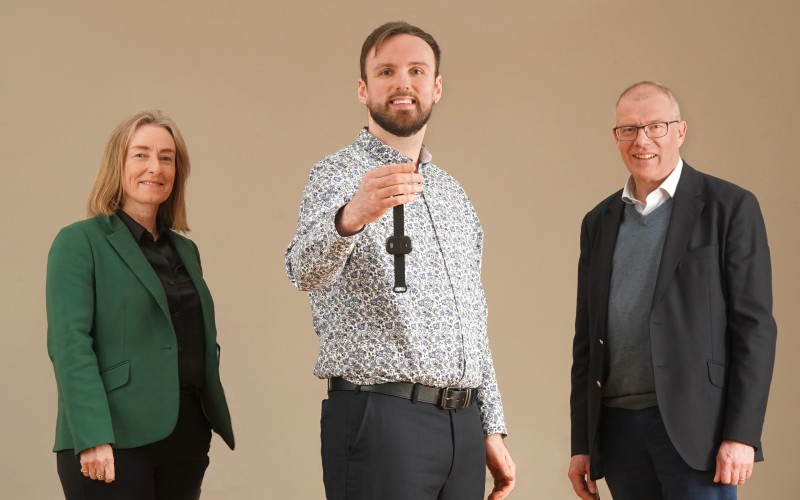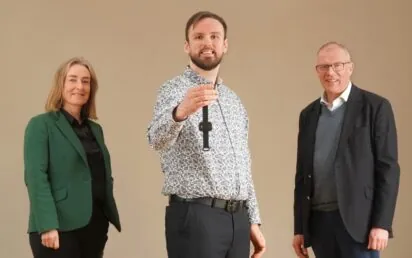Neupulse has secured £2.5 million funding to commercialise the world’s first wearable device to tackle Tourette Syndrome.
The University of Nottingham spinout, which featured on our sister publication TechBlast’s recent Nottingham Startups 2.0 list, is also targeting other tic disorders and is moving towards regulatory approval in the UK, Europe, and the USA.
Neupulse’s recently finalised working prototype stimulates the median nerve in the wrist, reducing the frequency of tics in individuals with TS, a condition that is thought to affect as much as 2% of the world’s child population and 1% of the overall population.
Clinical trials in 2023 showed the Neupulse device can reduce tics by over 25 percentile.
The seed stage investment was led by Scottish impact investor Eos Advisory alongside a consortium including US-based investors.
“Tourette’s Syndrome is a debilitating condition, severely so in many cases and to the detriment of quality of life, and our mission is to drastically reduce tics with an easy-to-use wearable device that will be transformative to the lives of affected individuals,” said Paul Cable, CEO.
“Our device is an alternative to the current provision of treatment for TS, which is centred around medication and cognitive behaviour therapy. The goal is for Neupulse to be available to the TS community globally in the years ahead.”
Ana Stewart, partner, Eos Advisory, said: “Eos was set up to back science-based companies and founders developing technologies that can positively impact the lives of people across the globe.
“Whilst we are focussed on Scottish startups, when one of our investors brought the amazing work of Neupulse to our attention we realised that there was a huge opportunity to add value, well beyond the investment, to help bring this device to market and improve the lives of people affected by TS and related conditions.
“What’s even more exciting, is how the nascent technology could be beneficial for many other neural conditions in the future.”
Birmingham spinout behind ‘biggest leap in water treatment in 50 years’


